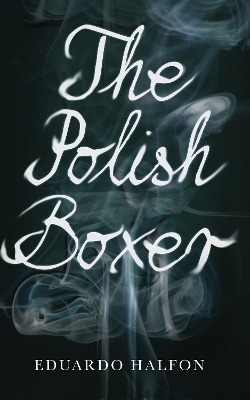Translated by Thomas Bunstead, Lisa Dillman, Daniel Hahn, Anne McLean, and Ollie Brock
"The Polish Boxer covers a vast landscape of human experience while enfolding a search for origins: a grandson tries to make sense of his Polish grandfather’s past and the story behind his numbered tattoo; a Serbian classical pianist longs for his forbidden heritage; a Mayan poet is torn between his studies and filial obligations; a striking young Israeli woman seeks answers in Central America; a university professor yearns for knowledge that he can’t find in books and discovers something unexpected at a Mark Twain conference. Drawn to what lies beyond the range of reason, they all reach for the beautiful and fleeting, whether through humor, music, poetry, or unspoken words. Across his encounters with each of them, the narrator—a Guatemalan literature professor and writer named Eduardo Halfon—pursues his most enigmatic subject: himself."
I look for books from different countries of origin and every year I find that I'm lacking in Latin American books. I also am always on the lookout for books about Poland. I was thrilled and intrigued when I found a book by a Guatemalan author that referenced Poland.
This books is a series of interconnected stories. Like all short story collections, I felt like there was something that I was missing as I was reading this book. Short stories feel like there is a level of symbolism or intent just under the surface that leaves the reader feeling like they missed something important.
Distant
A college professor in Guatemala starts his introductory literature class on short stories. He doesn't like his students because they don't care about literature. Then he realizes that there is one student who does care. When that student drops out a few weeks later, he travels to his home in the country to find out why.
This story has little aside in it when a student named Ligia asks why all the writers were male.
"There are also no black writers, Ligia, or Asian writers, or midget writers, and as far as I'm aware, there's only one gay writer. I told her that my courses were politically incorrect, thank God. In other words, Ligia, they're honest. Just like art. Great short story writers, period."
So, in other words, my habit of specifically looking for books outside of my English-speaking American existence which led me to find this book, is stupid.
Twaining
He goes to a seminar on Mark Twain where a real Mark Twain scholar makes fun of them all for overthinking.
Epistrophy
He meets a Serbian pianist performing in Guatemala. The pianist is part Gypsy and admits that he'd rather be playing Gypsy music.
White Smoke
He meets an Israeli tourist in a bar. He admits that he is Jewish.
The Polish Boxer
How did his grandfather survive the camps?
Postcards
He gets postcards from around the world from the Serbian pianist explaining Gypsy music until he suddenly disappears.
Ghosts
He decides to go hunting for the pianist.
The Pirouette
He is in Serbia hunting for the pianist and trying to find out what does it mean when a Gypsy does a pirouette?
A Speech at Povoa
He needs to write a speech on literature tearing reality.
Sunsets
His grandfather dies and he finds out that maybe everything he thought he knew was a lie.
Did I like this book? I'm not sure. The writing was beautiful and could draw you in. The stories had some interesting moments. I liked The Polish Boxer and Postcards best. The Pirouette bored me out of my mind.
This book would be good for people interested in Latin American literature who enjoy lyrical writing.This review was originally posted on Based On A True Story
